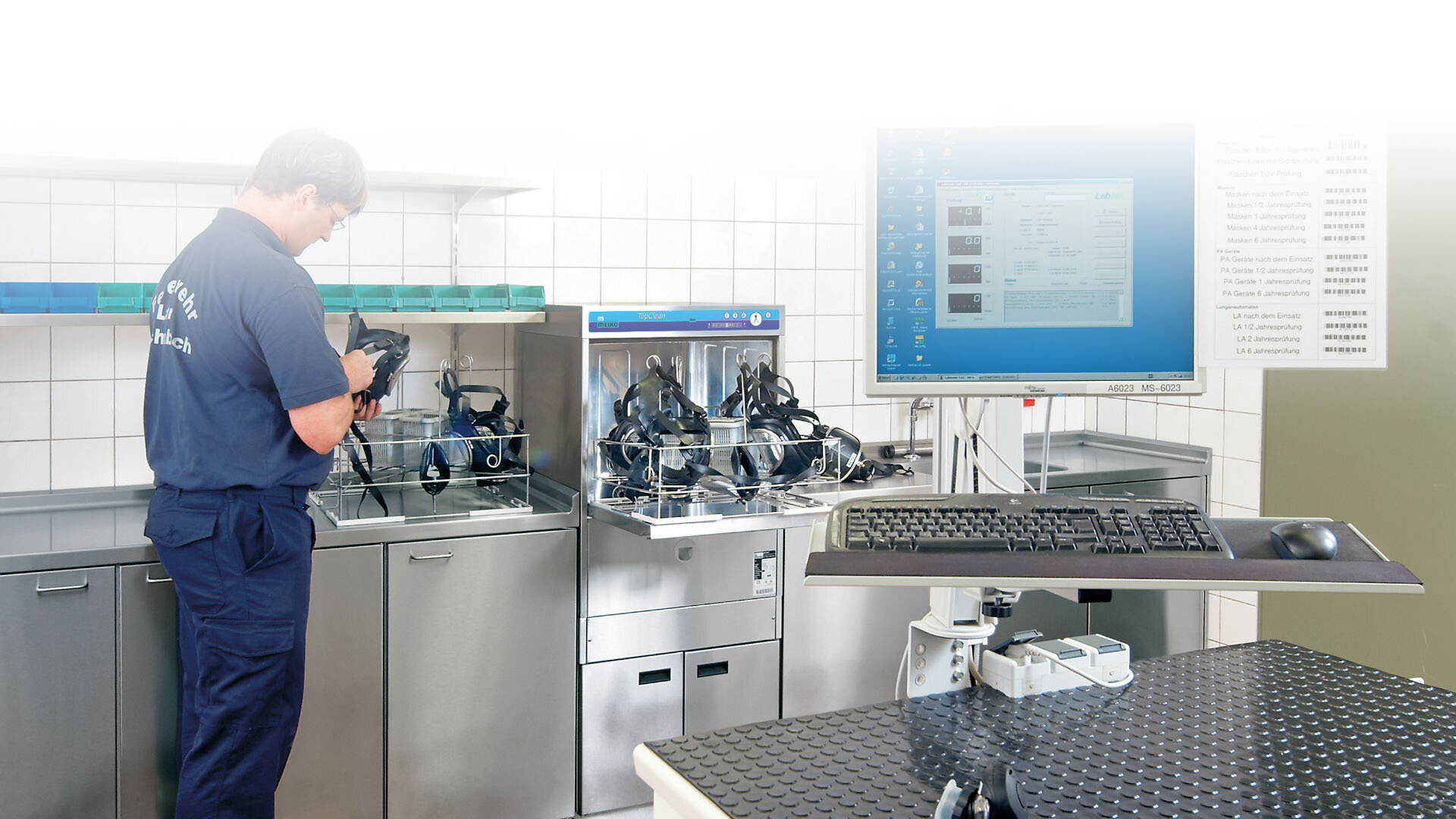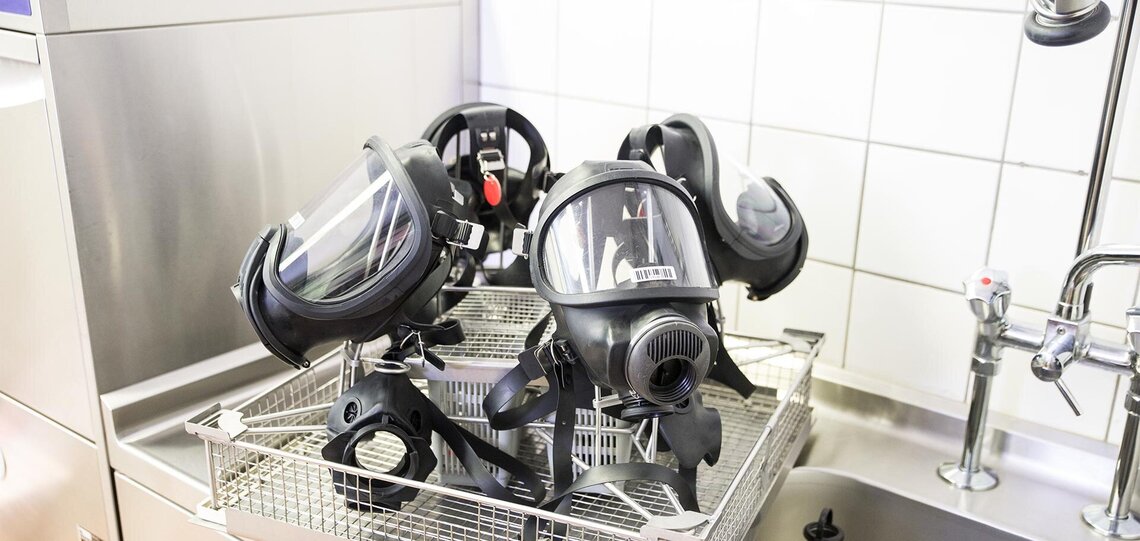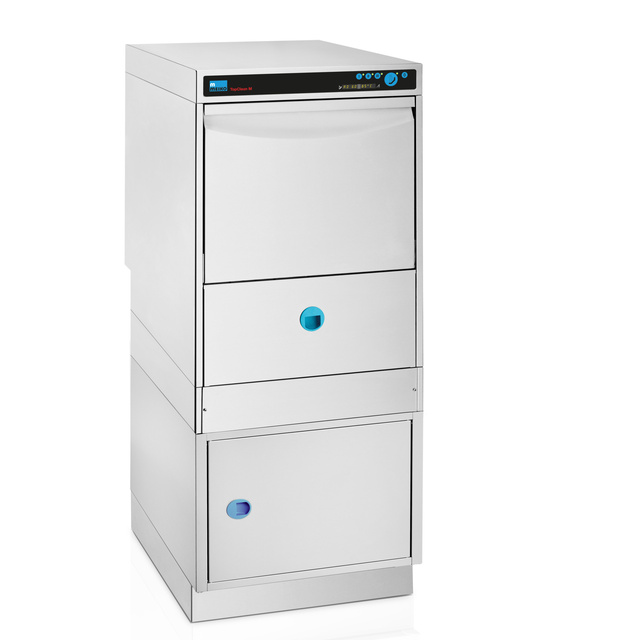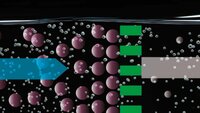The respiratory equipment from 13 volunteer fire departments and 3 factory fire departments is reprocessed in Lahr Fire Service's respiratory equipment workshop under the supervision of the respiratory mask and equipment manager Ralf Wieseke. Some 2,000 used masks a year have to be returned to a pristine, perfectly hygienic state ready for their next deployment.
Previously the masks were cleaned in dip tanks or in washing machines – but that was before Lahr Fire Service's respiratory equipment workshop installed a TopClean M cleaning and disinfection appliance equipped with a reverse osmosis system. Equipment manager Ralf Wieseke had long been frustrated with both the previous methods: If the masks were left immersed in the dip tank too long, the softeners in the masks' rubber components would start to dissolve, but if the masks were washed in the washing machine, each mask had to be placed in a separate bag to ensure none of the small parts went missing.
The Lahr Fire Station was the first setting in which the TopClean M was confronted with real-life conditions on a daily basis. Together with the experts from the Lahr respiratory equipment workshop, MEIKO had spent 14 months putting the final touches to the TopClean M, a cleaning and disinfection appliance which was specially conceived for fire departments. This included putting a test mask through its paces, subjecting it to a total of 350 cleaning cycles. The result? No visible signs of damage or impairment whatsoever and, even more importantly, a 100% pass rate when the mask was checked for air-tightness. That's why Ralf Wieseke describes MEIKO's mask reprocessing technology as:
an efficient and stable process that ensures high-quality mask cleaning while protecting the mask materials and saving time and resources.
The MEIKO equipment installed at the Lahr fire station also included stainless steel work surfaces for the dirty and clean zones. The decision to use MEIKO technology has seen the time required to reprocess masks fall by 60%. This effect is multiplied by the fact that less capital is now tied up in masks – the respiratory equipment is reprocessed faster, so there is less redundancy overall.
Ralf Wieseke and the MEIKO team are happy to supply further information on request.





